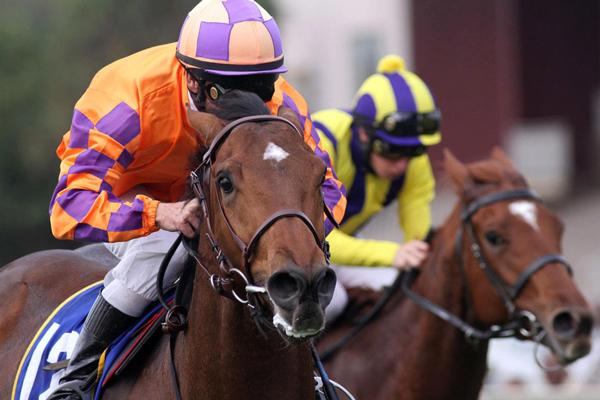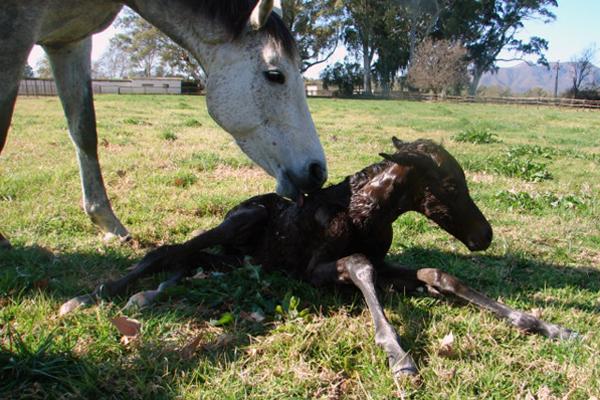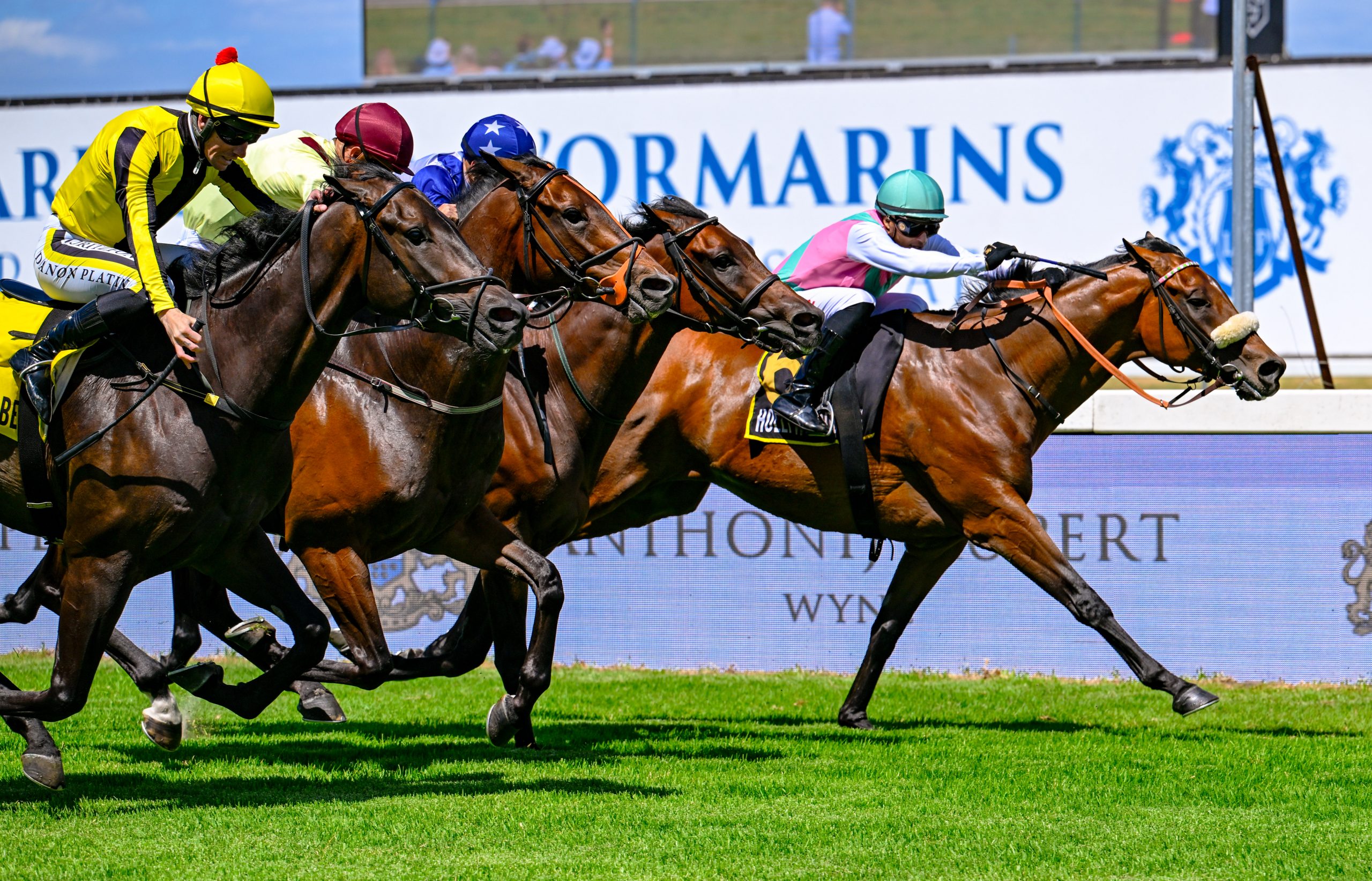The world’s s horseracing nations are ruled by the pattern concept, which sees top races listed as either graded or group races.
This information all goes into a horse’s pedigree that one will find in the sales catalogue.
“Australia, Europe and Britain list their major races as group races, while the rest of the world, including South Africa use the term ‘Graded’ because the term Group is protected in the same way that the French claim the right to the word champagne. It’s just a name,” explains top bloodstock agent John Freeman.

Dennis Drier-trained Gr1 Tsogo Sun Gold Medallion winner Potent Power
The very top races are listed as Grade/Group 1, and these contests cater for the very best horses in training.
When a colt or filly wins a G1 race, he or she almost automatically gains huge value both for resale and/or a future career at stud.
Gr1 winners are expected to be more likely to reproduce their own ability and can increase their value many times over.
The slightly lower Grade/Group 2 races are also prized but there are more of them. These are a natural filter to get into Gr1 races, or for horses not quite good enough to compete at the very highest level.
Grade/Group 3 races test horses who are considered potential for higher grades, not all, but as Freeman further explains most top horses climb the ladder to the top this way.
The lowest class of ‘stakes races’ are; Listed races – this term is used throughout all of the racing jurisdictions in the world.
There are twice as many listed races as there are Group or Graded races, but they also add the highly prized bold-type to a pedigree as an acknowledgment of status.
They are, however, not as valuable, in prize money or status, as Group and Graded races.

A star is born! Gr1 winner Link Man at Riverton Stud
Breeders seek out horses that have this status, the more bold type they have the more desirable.
Likewise, John Freeman ideally wants to see this bold type on the pedigree page in siblings and other relatives. The more bold type – and higher quality of it – the better.
Owners of fillies and mares (i.e. female horses) are always keen for their fillies to win at either Graded/Group or Listed level, as their horse thereby obtains some very valuable black type to her name, which also usually ensures that she will retire to a career at stud following her racing career.
If a mare has black type to her name (bold black type means she has won either at Graded or Listed level whereas small black type means the mare finished in the first three placings in said races) would-be buyers often spend more time looking at, and Sarah Whitelaw contends, are often more likely to buy, her saleable progeny.
While not an infallible guide – some black type races are far more prestigious than others – black type is usually a reliable guide of identifying merit in a mare and statistics clearly show that better racemares usually make a better broodmare.
In looking at a yearling’s pedigree, it is also important to note whether a mare has produced previous progeny that can win.
As greatness can sometimes skip a generation or two, the pedigree will also show the grandmother (2nd dam) and the great grandmother (3rd dam).
Kindly brought to you by Riverton Stud – click on the image below to find out more









